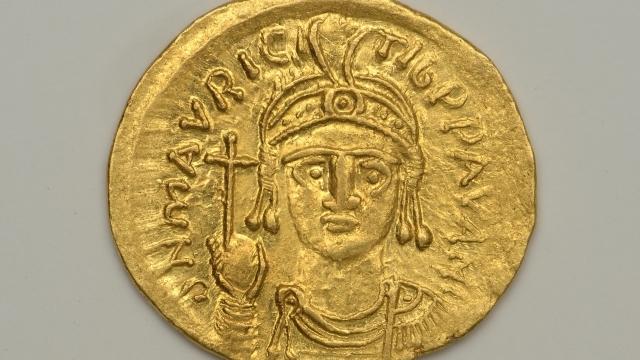
Dumbarton Oaks Byzantine Coin Collection’
‘Emperor Maurice: from failure to holiness’
Although Emperor Maurice (582-602) emerged as one of the preeminent military leaders in late antiquity, and despite having his own sons as potential successors, he was overthrown by mutinous soldiers led by Phocas. Phocas not only dethroned the emperor but also orchestrated the execution of Maurice and his sons, who met their demise in the grim presence of their father. The bodies of the deceased were subjected to desecration, symbolizing the comprehensive nature of Emperor Maurice's defeat. Following Maurice's demise, a contentious debate ensued regarding the preservation of his memoria. Phocas (602-610), having seized power, propagated a narrative depicting Maurice as a tyrant. Conversely, Heraclius (610-641), who subsequently ousted Phocas, crafted an image of Maurice that underscored his legitimacy while acknowledging his inherent flaws. In the East Syriac tradition, characterized by its Sasanian cultural milieu, a distinct narrative emerged. According to this account, a surviving son of Maurice assumed the imperial title of catholicos emperor. However, an intriguing twist in the tale unfolded, suggesting that Maurice, cognizant of his transgressions, yearned for a rigorous penance. He supposedly endured this penance with an aura of sanctity, thereby transforming the narrative of his failure and desecration into the foundation for his sanctification.
All welcome. No registration required
Location
Speakers
- Prof. Hartmut Leppin, Goethe University
Contact
- Tatiana Bur